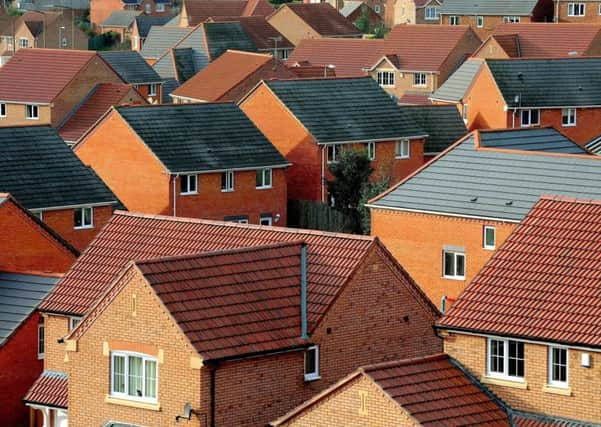Yorkshire housing crisis: Devolution is a key driver to fixing broken housing market


Dan Jarvis, Sheffield City Region mayor, said: “Devolving power and funding to the right tier of local, regional and national Government means that decisions can be taken at the right level.”
He said the current formula for calculating housing need “favours London and the South-East as it prioritises schemes where homes will be sold for higher prices.
Advertisement
Hide AdAdvertisement
Hide Ad“Instead, funds should be allocated based on need, rather than straightforward financial gain,” he said.


“This would help to rebalance the North-South divide and give communities within the Sheffield City Region a fairer deal.”
Mr Jarvis was speaking as new analysis of official Government data revealed huge discrepancies in housing supply across some of Yorkshire’s cities and rural districts.
While large metropolitan centres like Leeds and Sheffield limp towards achieving housing supply rates at the same pace as they were before the recession, some outlying areas are exceeding targets by huge numbers. However areas with longer standing devolution deals are already reaping some benefits – like the West Midlands, which received a pledge of £350m to help boost house building in the spring budget.
Advertisement
Hide AdAdvertisement
Hide AdMeanwhile, the housing picture across some of Yorkshire’s more rural areas is also a mixed one.
Richmondshire – which only needs to build 14 homes a year according to Government estimates in the BBC data – is managing to build 11 times that many homes on average, giving it the highest performance in the country for net additions to its stock.
However there are also large differences between Government and council estimates of new homes need.
Experts from across the housing policy and building sectors agreed today that planning laws are in need of a major overhaul if the country is to bring housing supply in line with long term demand.
Advertisement
Hide AdAdvertisement
Hide AdThey also believe diversifying the market, taking the power out of the hands of the big developers and opening up the green belt could all be factors.
James Prestwich, head of policy, National Housing Federation, believes the Government is actually underestimating the numbers of homes the country needs long term.
“The research we have carried out suggests that there is a backlog of about four million homes in England alone, and in order to be able to make up that backlog, we need to be building in the region of somewhere around 340,000 a year,” he said.
“It’s been about 40 years or more since we last built enough homes to keep pace with demand.
Advertisement
Hide AdAdvertisement
Hide Ad“Housing Associations understand the scale of the issue – and they have an absolutely pivotal role in solving the housing crisis.”
For Andrew Dixon of the Federation of Master Builders, small sites and SME (small and medium enterprises) builders are crucial to solving the crisis – but he says the Brexit exodus of EU workers is already causing concern. He claims an outward flow of foreign workers coupled with lack of skills at home could push the country towards a housing supply “cliff edge”.
And John Myers, co-founder of the London YIMBY (Yes In My Back Yard) campaign, believes the answer lies in putting politics aside, empowering communities to build for themselves – and “pulling together as a nation to sort this mess”.
“This is a national emergency,” he said. “This should require a national effort on the scale of what we did after the Second World War.
“We just need to ramp things up and pull together as a nation because if we don’t, this is just going to get worse and worse.”